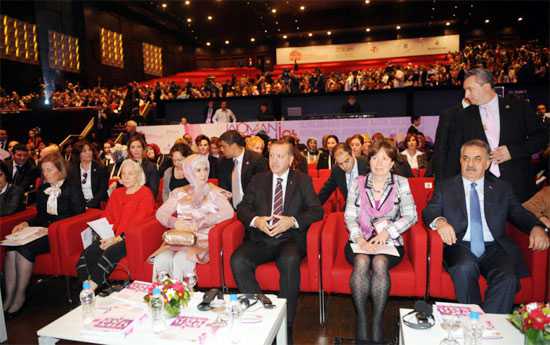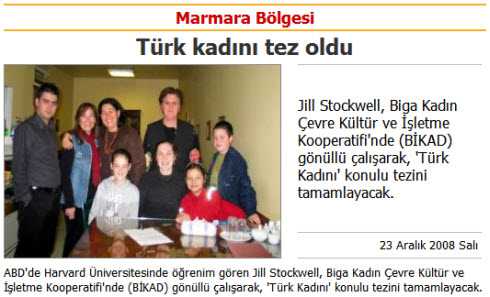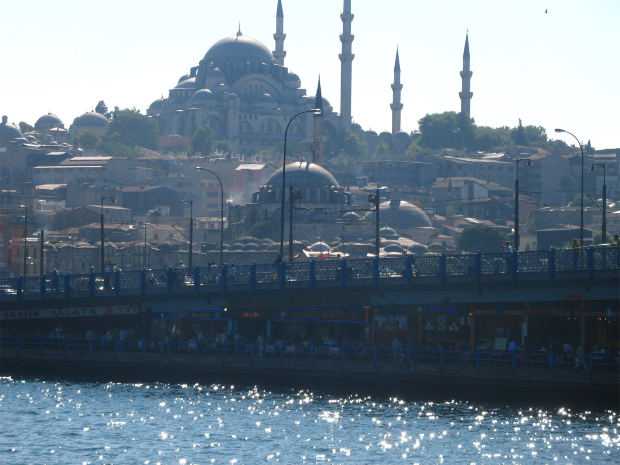NYTIMES
Sima Sayyah
Protesters last month outside the Palestinian Embassy in Tehran denounced the killing of women and children in Gaza.
By NAZILA FATHI
Published: February 12, 2009
TEHRAN — In a year of marriage, Razieh Qassemi, 19, says she was beaten repeatedly by her husband and his father. Her husband, she says, is addicted to methamphetamine and has threatened to marry another woman to “torture” her.
Rather than endure the abuse, Ms. Qassemi took a step that might never have occurred to an earlier generation of Iranian women: she filed for divorce.
Women’s rights advocates say Iranian women are displaying a growing determination to achieve equal status in this conservative Muslim theocracy, where male supremacy is still enscribed in the legal code. One in five marriages now end in divorce, according to government data, a fourfold increase in the past 15 years.
And it is not just women from the wealthy, Westernized elites. The family court building in Vanak Square here is filled with women, like Ms. Qassemi, who are not privileged. Women from lower classes and even the religious are among those marching up and down the stairs to fight for divorces and custody of their children.
Increasing educational levels and the information revolution have contributed to creating a generation of women determined to gain more control over their lives, rights advocates say.
Confronted with new cultural and legal restrictions after the Islamic Revolution in 1979, some young women turned to higher education as a way to get away from home, postpone marriage and earn social respect, advocates say. Religious women, who had refused to sit in classes with men, returned to universities after they were resegregated.
Today, more than 60 percent of university students are women, compared with just over 30 percent in 1982, even though classes are no longer segregated.
Even for those women for whom college is not an option, the Internet and satellite television have opened windows into the lives of women in the West. “Satellite has shown an alternative way of being,” said Syma Sayah, a feminist involved in social work in Tehran. “Women see that it is possible to be treated equally with men.”
Another sign of changing attitudes is the increasing popularity of books, movies and documentaries that explore sex discrimination, rights advocates say.
“Women do not have a proper status in society,” said Mahnaz Mohammadi, a filmmaker. “Films are supposed to be a mirror of reality, and we make films to change the status quo.”
In a recent movie, “All Women Are Angels,” a comedy that was at the top of the box office for weeks, a judge rejects the divorce plea of a woman who walked out on her husband when she found him with another woman.
Even men are taking up women’s issues and are critical of traditional marriage arrangements. Mehrdad Oskouei, another filmmaker, has won more than a dozen international awards for “The Other Side of Burka,” a documentary about women on the impoverished and traditional southern island of Qeshm who are committing suicide in increasing numbers because they have no other way out of their marriages.
“How can divorce help a woman in southern parts of the country when she has to return after divorce to her father’s home who will make her even more miserable than her husband?” said Fatimeh Sadeghi, a former political science professor fired for her writing on women’s rights.
Janet Afary, a professor of Middle East and women’s studies at Purdue University and the author of “Sexual Politics in Modern Iran,” says the country is moving inexorably toward a “sexual revolution.”
“The laws have denied women many basic rights in marriage and divorce,” she wrote in the book. “But they have also contributed to numerous state initiatives promoting literacy, health and infrastructural improvements that benefited the urban and rural poor.”
To separate the sexes, the state built schools and universities expressly for women, and improved basic transportation, enabling poor women to travel more easily to big cities, where they were exposed to more modern ideas.
Ms. Afary says that mandatory premarital programs to teach about sex and birth control, instituted in 1993 to control population growth, helped women delay pregnancy and changed their views toward marriage. By the late 1990s, she says, young people were looking for psychological and social compatibility and mutual intimacy in marriage.
Despite the gains they have made, women still face extraordinary obstacles. Girls can legally be forced into marriage at the age of 13. Men have the right to divorce their wives whenever they wish, and are granted custody of any children over the age of 7. Men can ban their wives from working outside the home, and can engage in polygamy.
By law, women may inherit from their parents only half the shares of their brothers. Their court testimony is worth half that of a man. Although the state has taken steps to discourage stoning, it remains in the penal code as the punishment for women who commit adultery. A woman who refuses to cover her hair faces jail and up to 80 lashes.
Women also face fierce resistance when they organize to change the law. The Campaign for One Million Signatures was founded in 2005, inspired by a movement in Morocco that led to a loosening of misogynist laws. The idea was to collect one million signatures for a petition calling on authorities to give women more equal footing in the laws on marriage, divorce, adultery and polygamy.
But Iran’s government has come down hard on the group, charging many of its founders with trying to overthrow it; 47 members have been jailed so far, including 3 who were arrested late last month. Many still face charges, and six members are forbidden to leave the country. One member, Alieh Eghdamdoust, began a three-year jail sentence last month for participating in a women’s demonstration in 2006. The group’s Web site, www.we-change.org, has been blocked by the authorities 18 times.
“We feel we achieved a great deal even though we are faced with security charges,” said Sussan Tahmasebi, one of the founding members of the campaign, who is now forbidden to leave Iran. “No one is accusing us of talking against Islam. No one is afraid to talk about more rights for women anymore. This is a big achievement.”
Women’s advocates say that the differences between religious and secular women have narrowed and that both now chafe at the legal discrimination against women. Zahra Eshraghi, for example, the granddaughter of the revolutionary leader, Ayatollah Ruhollah Khomeini, signed the One Million Signatures petition.
“Many of these religious women changed throughout the years,” said Ms. Sayah, the feminist in Tehran. “They became educated, they traveled abroad and attended conferences on women’s rights, and they learned.”
Because of the government’s campaign of suppression, the process of collecting signatures has slowed recently, and many women do not want to be seen in the presence of a campaigner, let alone sign a petition. Most feminist groups limit their canvassing now to the Internet.
But while the million signatures campaign may have stalled, women have scored some notable successes. A group that calls itself Meydaan has earned international recognition for pressing the government to stop stonings.
The group’s reporting on executions by stoning in 2002 on its Web site, www.meydaan.net — including a video of the execution of a prostitute — embarrassed the government and led the head of the judiciary to issue a motion urging judges to refrain from ordering stonings. (The stonings have continued anyway, but at a lower rate, because only Parliament has the power to ban them.)










 This intimate, feauture-length documentary delves into the compelling lives of three women in Istanbul, Belkis, Nur and Banu who juggle Eastern and Western cultures, daily, in her own unique way.
This intimate, feauture-length documentary delves into the compelling lives of three women in Istanbul, Belkis, Nur and Banu who juggle Eastern and Western cultures, daily, in her own unique way.
 they are not afraid to weigh in with opinions on religion, politics, men, gender roles and the Western attitude toward the East. All three women continually push the envelope to live authentic lives in a culture where many women are restricted by the demands of tradition. Nur received her MBA from University of Illinois and now works as a feminist activist. Belkis, a textile artist, was a museum curator for years and Banu is studying for her Master’s degree in Psychology. Belkis and Nur have built illustrious careers and overcame the conflict between their Western education, their family traditions and societal demands. In private, Belkis and Nur air their frustrations with the patriarchal traditions and encourage the younger generations of which Banu is a member, to be less burdened by dictates of tradition.
they are not afraid to weigh in with opinions on religion, politics, men, gender roles and the Western attitude toward the East. All three women continually push the envelope to live authentic lives in a culture where many women are restricted by the demands of tradition. Nur received her MBA from University of Illinois and now works as a feminist activist. Belkis, a textile artist, was a museum curator for years and Banu is studying for her Master’s degree in Psychology. Belkis and Nur have built illustrious careers and overcame the conflict between their Western education, their family traditions and societal demands. In private, Belkis and Nur air their frustrations with the patriarchal traditions and encourage the younger generations of which Banu is a member, to be less burdened by dictates of tradition. Through these individual stories, we see the transformation of a society from traditional Islamic patriarchy to a more democratic one where Islamic values can co-exist with democracy and gender equality. The theme of “following one’s dream” is the focus of the film and of these women’s lives. Belkis, Nur, and Banu share the desire of self-discovery and creating a community of their own. Their on-going battle with cultural and societal restrictions helps them to become more confident and compassionate. Much of the drama in Women Who Dare emerges from the loss and suffering and the triumphs of coming into one’s own.
Through these individual stories, we see the transformation of a society from traditional Islamic patriarchy to a more democratic one where Islamic values can co-exist with democracy and gender equality. The theme of “following one’s dream” is the focus of the film and of these women’s lives. Belkis, Nur, and Banu share the desire of self-discovery and creating a community of their own. Their on-going battle with cultural and societal restrictions helps them to become more confident and compassionate. Much of the drama in Women Who Dare emerges from the loss and suffering and the triumphs of coming into one’s own. heck out production photos and the latest updates in the news section.
heck out production photos and the latest updates in the news section.
 n March 2005, Turkish corporation ESBAS donated a generous production grant to the film. Check out our sponsors.
n March 2005, Turkish corporation ESBAS donated a generous production grant to the film. Check out our sponsors.
